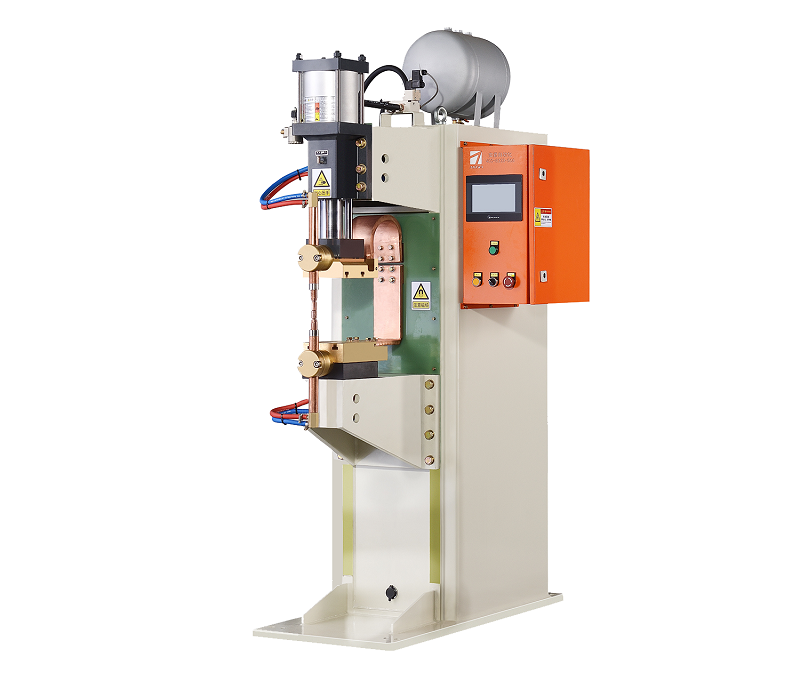Electrode materials play a crucial role in the performance and quality of medium frequency inverter spot welding machines. The selection and characteristics of electrode materials greatly influence the welding process, including electrical conductivity, heat resistance, durability, and weld joint quality. This article provides an overview of electrode materials commonly used in medium frequency inverter spot welding machines and the requirements for their optimal performance.

- Common Electrode Materials: Medium frequency inverter spot welding machines utilize various electrode materials based on specific welding applications and workpiece materials:
- Copper: Copper electrodes are widely used due to their excellent electrical conductivity, heat resistance, and high thermal conductivity, ensuring efficient energy transfer and minimizing electrode wear.
- Chromium Copper: Chromium copper electrodes offer enhanced hardness, wear resistance, and higher thermal conductivity than pure copper, making them suitable for demanding welding applications.
- Tungsten Copper: Tungsten copper electrodes possess exceptional heat resistance and high strength, making them suitable for welding applications involving high temperatures or materials with high thermal conductivity.
- Refractory Metals: Materials such as molybdenum, tantalum, and tungsten are used as electrodes in specialized welding applications that require extreme heat resistance and durability.
- Requirements for Electrode Materials: To achieve optimal performance in medium frequency inverter spot welding machines, electrode materials must meet certain requirements:
- Electrical Conductivity: Electrode materials should have high electrical conductivity to facilitate efficient current flow, minimizing resistance and ensuring consistent heat generation during the welding process.
- Heat Resistance: Electrodes must withstand the high temperatures generated during welding without significant deformation or degradation, ensuring prolonged service life and maintaining consistent performance.
- Durability: Electrode materials should exhibit good wear resistance to withstand repeated use and prevent excessive electrode tip wear, ensuring consistent weld quality and minimizing downtime for electrode replacement.
- Surface Quality: Electrode surfaces should be smooth and free from defects or contaminants to ensure good contact with the workpieces, promote efficient current transfer, and minimize the risk of weld defects.
- Electrode Maintenance: Proper maintenance of electrodes is essential for their longevity and performance:
- Regular Cleaning: Electrodes should be cleaned regularly to remove any debris, oxides, or contaminants that can affect their performance and interfere with the welding process.
- Electrode Dressing: Periodic dressing of electrode tips helps maintain their shape, surface quality, and contact area, ensuring consistent weld quality and minimizing electrical resistance.
Electrode materials play a critical role in the performance and quality of medium frequency inverter spot welding machines. The selection of appropriate electrode materials based on electrical conductivity, heat resistance, durability, and surface quality is essential for achieving optimal welding results. Copper, chromium copper, tungsten copper, and refractory metals are commonly used electrode materials, each with its specific advantages and applications. By meeting the requirements for electrical conductivity, heat resistance, durability, and surface quality, electrode materials contribute to efficient energy transfer, prolonged electrode life, and consistent weld quality in medium frequency inverter spot welding machines. Proper electrode maintenance further ensures their longevity and optimal performance.
Post time: May-26-2023


